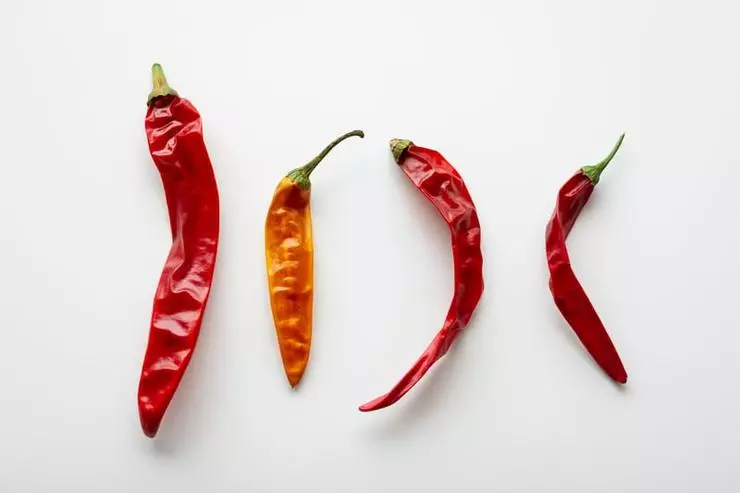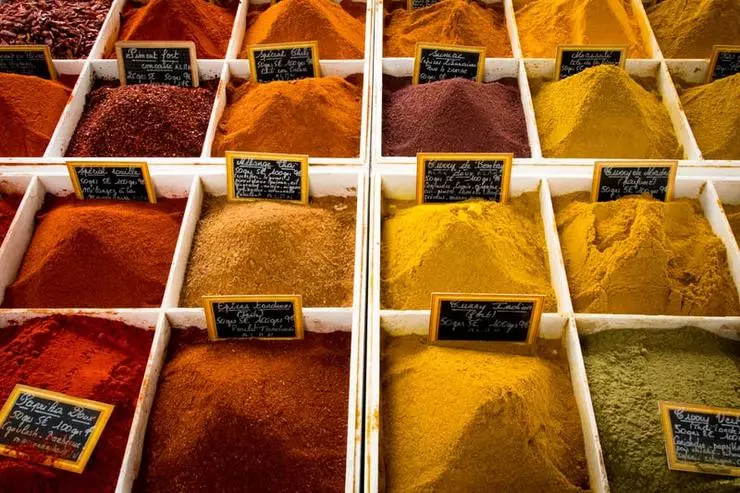Regardless of whether you are a chef amateur or an experienced chef, you probably know that a well-equipped wardrobe for spices is one of the secrets of improving your dishes. You can not realize that spices make more than just season your food - they also perform a natural preservative, give your dishes color and useful for health.
Many common spices and herbs, such as carnation, turmeric, rosemary, sage and cinnamon, demonstrated powerful antioxidant and anti-inflammatory properties in the course of research of foreign scientists. Moreover, the first data suggests that frequent use of food products with spices and herbs can reduce the risk of complications associated with cardiac and respiratory diseases. We translate the material of Healthline, where it is described about the storage of ordinary dried herbs and spices, including how to find out when they are ready to use.

One-piece pepper is kept up to 4 years
Photo: unsplash.com.
The shelf life of herbs and spices
Sanitary supervision control of food and medicines (FDA) defines spices as "aromatic plant substances in a whole or crushed form, whose important function in food is to add taste, and not in nutrients." In the spice cooking - these are seasonings made from dried roots, bark or plants stem, and herbs are dried or fresh leaves of the plant. When determining the storage period of dried herbs and spices, such variables should be taken into account as their type, method of processing and storage. For example, dried spices are usually stored longer than dried herbs, and the more solid or less treated seasoning, the longer its storage.
Dried herbs are usually stored for 1-3 years. Examples include: basil, oregano, thyme, rosemary, bay leaf, dill, parsley, cilantro, mint, mayorran, etc. Ground or powdered spices are usually stored for 2-3 years. Examples: Powder ginger, garlic powder, hammer cinnamon, chili powder, turmeric, ground fragrant pepper, ground cardamom, ground pepper, crushed flakes of red pepper, mixtures seasoning.
Whole or unwitted spices have the longest shelf life, since a smaller part of their surface is exposed to air, light and moisture. This allows them to maintain aromatic oils and taste compounds longer than their ground analogues. With proper storage, whole spices can be stored up to 4 years. Examples include: whole pepper peas, coriander, mustard seeds, fennel seeds, cumin seeds, cumin seeds, solid nutmeg, carnation, cinnamon sticks, whole dried chili peppers, lemgrass.
Salt is an exception to the rules, as it can be used unlimited time, regardless of its size and shape, without damage and loss of taste. However, if you use the flavored salt, any additional seasonings can lose your freshness over time.
How to find out whether your spices have spoiled
Dried herbs and spices do not actually expire and do not spoil in the traditional sense. When they say that the spice has deteriorated, it simply means that she lost most of his taste, activity and colors. Fortunately, the use of spoiled spice is unlikely to cause a disease. For many spices purchased in the store, the date of suitability, which indicate the period of time during which they will retain the most powerful taste and quality. In general, dried herbs and spices, whose shelf life has expired, is still safe, although they will not add such taste as their fresh analogues.
If you do not know how much time you have spices, you can determine whether they are ready for use, according to their smell and taste. Disstain or wrap a small amount of seasoning in the palm. If the smell is weak, and the taste is dim, probably the time to replace them.
Spice storage for maximum storage period
Minimizing their effects of air, heat, light and moisture is the key to increasing the storage period of your herbs and spices, which can help you reduce the amount of waste and save money to buy new products. Although keeping spices in transparent containers next to the stove can be convenient and aesthetic, it is not the best way to keep their freshness. Instead, cool, dry and dark place, such as a pantry, a box or a closet, located away from the plate or oven, is a great place to store your spice collection.

Spices can not be stored in an open form
Photo: unsplash.com.
You must also make sure that your spices are stored in tightly closed non-porous containers. Glass or ceramic containers are one of the best options, as they are easily clean and perfectly hold the air and moisture. Plastic containers are also a popular choice, but they are usually not so sealed and can absorb colors and smells of various spices. It can make it difficult to clean if you want to use them again. Another acceptable option is stainless steel or tin containers, but since the metal has thermal conductivity, it is even more important to store them away from heat sources such as a stove.
Although the cooling is not required, red spices, such as pepper and Cayenne pepper, retain their pigment longer if they store them in the refrigerator. Similarly, the storage of the seasonings containing oil, such as sesame and poppy, in the refrigerator, can prevent their vulgarity. Also keep in mind that moisture can quickly worsen the taste and texture of your spices, which can lead to their sintering or mold. If you notice the mold in any of the containers for spices, throw this product. You can save your spices dry by removing them from the container with a spoon before adding them to hot food, and not sprinkle them directly from the containers.
